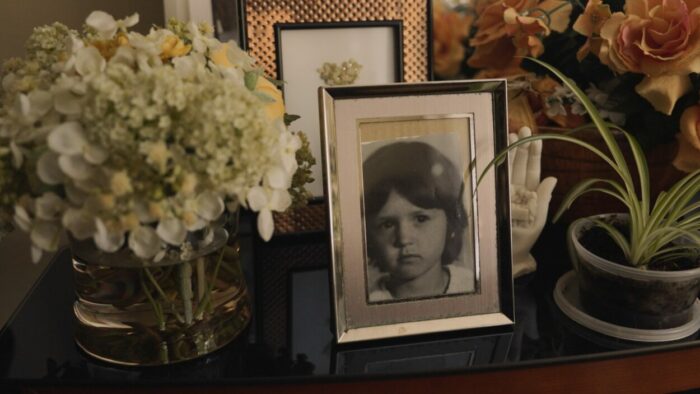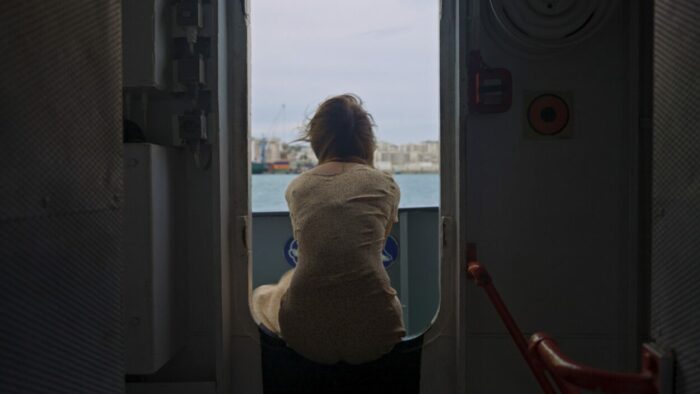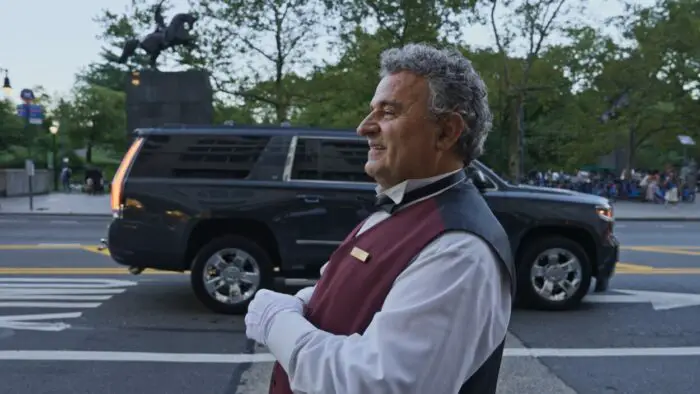Alexander Gruda has a story to tell. It’s one of hope, freedom, immigration, and, sadly, immeasurable tragedy. In Ardit Sadiku’s documentary, Alexander, this garrulous, irrepressible man looks back to his past to reconcile his loss with the freedom he gained. His is without doubt a remarkable story, one crystallized in a moment of time—September 11, 1990, some three-and-a-half decades ago. The challenge of Sadiku’s documentary is to convey both the facts of what happened that night and the gravitas of their consequences, especially when there exists no record, other than the participants’ memories, of the event.
Today, Gruda is a charming, hardworking bellhop in the employ of the Trump Corporation, where he has worked, happily, for decades. He and his wife live together in New York City, in a small apartment where they cherish their relationship with their son and rue the death of their daughter, who died at age five. His story begins in what was then the People’s Socialist Republic of Albania, where he, his wife, and their five-year-old daughter Anisa lived under the communist regime of the time, just a year before the Revolutions of 1989 led to with the fall of communism across eastern Europe and eventually to the establishment of the current Republic of Albania.

A mechanic in the Albanian Navy, Alexander rebelled against harsh treatment and was fired, set to be court martialed for insubordination. Like many people living under a totalitarian regime, he dreamed of political freedom. But when Alexander took action– embarking upon one of the most daring adventures of the Cold War era– he, his comrades-in-arms, and their families hatched a piratical plan.
Under the cloak of darkness, Alexander and his friends stole a warship, despite facing the resistance of the Albanian Navy in its full fury. They weathered mortar, helicopter, and machine gun fire, even fatal hand-to-hand combat, to make their way to Yugoslavia—and to freedom. From there, Alexander and his friends largely dispersed and disbanded around the globe, to other parts of free Europe, Australia, and the United States to start new lives. The cost of their dramatic act, though, was steep: not all survived.
Himself from Shkodér, Albania, Ardit Sadiku has directed/produced three narrative features as well as two documentary features. His films all focused, as is Alexander, on the global human struggle for freedom. Shot in New York City, Albania, Montenegro, and Australia, Alexander depends nearly entirely on Alexander and his shipmates’ recollections of the fateful events of September 11, 1990. Sadiku, a filmmaker with an eye for stunning composition and a keen storytelling acumen, interviews Alexander and others both at their homes and workplaces and as they reunite at the site of the their escape on the coast of Albania. As they do so, the subjects recollect, collectively, the fateful events of that night.

Sadiku’s threading together the disparate voices of the combatants into a coherent narrative makes for a singular focus but also poses a challenge, one that would vex any documentary filmmaker: there is no record, other than these survivors’ memories, of what happened. As a consequence, Alexander is filled with talk. At nearly every minute of its runtime, Alexander and his colleagues are narrating past events on camera. There are no archival records, no historical artifacts, no news footage, no reenactments, nothing other than the subjects talking on camera. It’s essentially an oral history on film. These memories are, to be sure, of paramount importance. Their freedom was hard, hard won, and their victory deserves the commemoration this documentary provides. With Alexander, the film, the events of that night have become a permanent part of a historical record.
At the same time, a documentary recording the participants narrating the events of a long-ago via only one means—people talking on camera—makes for a viewing challenge. Most documentaries of past events rely on other material, whether to provide some documentation, confirmation, or triangulation of fact, as well as to give viewers something to look at other than people talking. Alexander has only its subjects. Its story would make for an excellent docudrama on film, a historical novel in print, or an episodic podcast to stream. Perhaps one day the hard-won freedom of Alexander Gruda can be told again, in another form, to accompany this documentary.

In the meantime, for the first time, this incredible story of a man who risked all for his and his colleagues’ freedom is the one telling that exists. In Alexander, we have a documentary that looks into the past for the rich history of a man who, on the surface, might seem little more than a cheerful, middle-aged bellhop at a New York City hotel. Behind his charming demeanor is a story of flight, freedom, and loss, one that reminds us all of that political freedom is hard won, something to be treasured and, forever, remembered.
Alexander (2023) is an Albanian-American co-production, made with the support of the Albanian National Center of Cinematography (ANCC). It premiered at Dokufest 2023 and is slated to appear at additional festivals throughout the year.




